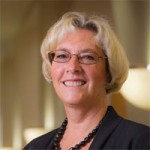This article is more than 5 years old.

I really enjoyed the Women’s Leadership Institute (and so did this pair of pelicans at Fernandina Beach). What I liked best was talking to women leaders from other professions within higher education – which was the original reason that I wanted to attend the Institute. We all work on the campus but we each have a different perspective on the same mission. It was great getting to know the professional issues in units like Residence Life and Housing, Business Office and Human Resources. When I talk to people in these areas on our campus in the future, I will have a greater appreciation of what is going on with them. Now to a re-cap of the final day:
The morning session was about negotiating during hiring – from both sides of the process. The speaker was a partner in an executive search firm and was very no-nonsense. She spoke only a little on the resume/phone/interview stages of the process and spent more time on actual negotiations, which was very useful. She emphasized things like doing homework on competing market conditions, both for salary and for other conditions of employment, who should name the first salary figure, walkaway points on either side, etc. She also gave tips for the “on-boarding” experience, that is making the transition to the new job, learning the culture, how the search committee can be a resource for the new hire, and how to spend the first few months learning both the expressed and ‘stealth’ mandates in any job. This was a very useful session in a tactical way that you don’t usually get in a conference presentation.
The afternoon session was on decision-making. Since models have been de rigeur in this Institute, we all went through an exercise to determine our style of decision-making: Decisive, Hierarchic, Flexible or Integrative. I came out to be “Flexible,” meaning being able to quickly sift through options to determine the proper course of action. I thought maybe I should strive to be more ” Integrative,” meaning framing things broadly and involving others in an evolving course of action, but lo and behold the facilitator said that the most successful (and highly paid) CEO’s were found to have a predominantly Flexible style so that made me feel better, as I have been told by some in my family that i tend to make “snap” judgments. Now I can point to empirical evidence to show that is a highly desirable trait!
After another wellness break when I made friends with Pete and Patricia Pelican, the last evening session was about the effects of the current recession on higher education. In addition to the global economic collapse, the following trends in higher education were also noted: growth in digital students, price-cost-productivity squeeze, new paradigm competitors, globalization and evolving social contact networks. Strategies for dealing with the crisis include bridging (getting by from here to there), the now-famous “don’t waste a good crisis (by taking on sacred cows), and the most aggressive “through cycle” which is a strategic shift in resources to new priorities. At Wake Forest, we have been taking a fairly aggressive approach.
I had to leave very early Wednesday morning to get to my Lyrasis Board meeting in Atlanta so I missed the final closing ceremonies. All in all, it was a great experience that I highly recommend!

1 Comment on ‘Women’s Leadership Institute (Finale)’
Sounds like a great conference: for learning about your own strengths and learning new skills. Interesting that the leaders who make “snap” judgments are the ones labeled “flexible.” Is it because one doesn’t make a quick decision until they’ve sifted the evidence?